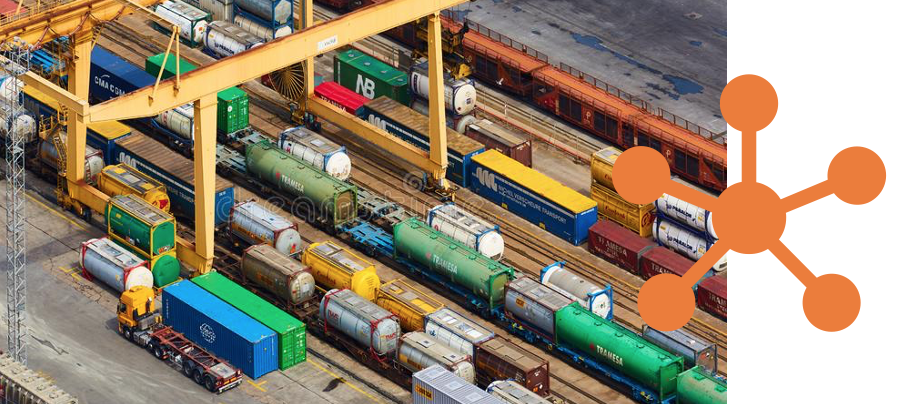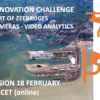The Speed Smart Port Manifesto provides details with regard to key characteristics of smart port ecosystems. We are aiming to distinguish lessons learned by the most advanced ports in North-West Europe in their trial to become Smart Ports. Two key issues that have to be solved are technological differences between port stakeholders and the need for a common regional strategy. Expert Marten van der Velde explains the approach to solve these issues from the perspective of Portbase, the port community system provider for the Dutch ports.
Solving the technological difference between port stakeholders
The foundation for the current success was laid 20 years ago when a start was made on the digitization of the core processes and accompanying paper and communications flows in the Dutch ports. From that moment on, it became possible to supply data for various reports and notifications between companies and with government bodies in an automated fashion. Due to the different notifications and the increase in data and applications, the reuse of data quickly became part of the automated process. The smart reuse of data resulted in fewer errors and allowed the various parties to minimize their liability and administrative burden. This led to a tremendous acceleration in logistics and in the emergence of a central point where data could be exchanged (digital infrastructure). The term paperless ports was born and organizations were able to operate faster, smarter and more efficiently through the use of Portbase services.
To this day, Portbase ensures that all the core processes in all Dutch ports function properly. Tens of thousands of users are connected to the Port Community System (PCS); in seaports and inland ports, they benefit from the service provision of Portbase on a daily basis. Whether this comprises mandatory notifications to the Harbour Master and government bodies, data exchange between companies or the management of rights and access to data; Portbase allows more than 4,700 companies to conduct business in a paperless manner in the supply chains via all Dutch ports.
“The companies active in or linked to the port are getting used to sharing data. These stakeholders involved in the ecosystem understand that by working together they can create a better competitive advantage.”
Marten Van der Velde, Director Strategy & Innovation at PortBase
In the beginning, much time was spent to persuade the organizations to join and exchange data through the Portbase system, says Marten Van der Velde. However, the port organizations involved in the ecosystem understand that by working together they can create a better competitive advantage.
The road to building a smart port ecosystem was not always straightforward. One of the barriers to build the community was for instance the non-homogenous maturity with regard to the technology used to process and exchange data. This differentiation finds its origin in e.g. a lack of resources at small players, while the big global corporations have started implementing advanced EDIfact-based systems since the ‘70s. Therefore, the port ecosystem had difficulties in implementing new chain wide solutions and scaling up existing solutions.
Along the years, Portbase has set low entry barriers to participate in the data exchange process. It invested for example in different technologies that even allows for xls formats to be read and the data be processed or for example, to translate EDIfact-based messages and process this data on web-interfaces. On top of that, different languages are supported and recognized in the data processing layer.
Currently about 80% of the community members are using the web interfaces to access the Portbase data, while 20% are making use of their own systems and own messages. By accessing Portbase’s functionalities, the hinterland transport operators can better utilize their assets while the terminal operators have one interface to reach and connect all the hinterland operators.
Building a common regional strategy
The harmonization of technological advancements is not only needed at local level, but also at regional or European level. Marten van der Velde remarks that “there are different community platforms at local levels, but on a cluster level or regional level, there is no centralized or federated platform”. The port platforms used at Mediterranean, Eastern or North-West ports still differ fundamentally at some points, not only in technique but also on business and regulation level.
This makes it difficult for global players to have smooth data transits through these points of entry. In this context, where global initiatives/platforms are in need to connect with European data flows and no single or federated system exists, these global platforms could bypass the local platforms and link directly with logistics stakeholders which could lead to a decrease of the earlier mentioned added value.
“Logistics does not stop at national borders. Ports are part of a movement in supply chains in which transparency and integrated total solutions are the standard. Open data and co-creation provide innovations to existing services. And the emergence of global platforms that offer insight into the entire supply chain poses us with the question “How can we remain relevant as ports?.”
Marten Van der Velde, Director Strategy & Innovation at Portbase
An option could be to explore with the existing local platforms (NXTPort, Portbase etc.) whether connections could be made and what the opportunities and benefits offered by this type of collaboration are, as well as the possibilities offered by connecting to the global platform, international ports in Asia and the US at the other end. On the technical side, all the ingredients are present, but on the portside it could be that common goals and strategies need still to be aligned. For sure we need to elevate and think in terms of the entire supply chain network.
How could local systems could co-exist?
The players that are currently providing global services are going to provide an overarching integration layer above regions in North-West Europe, Mediterranean etc, and ports in East Asia, US etc. It will then be the role of regional platforms to work as nodes in this network to provide further connection to local platforms or players. Hence, the local overarching platforms (like for example NxtPort, Portbase etc.) could act as a neutral middle layer in feeding the global players with data.
These platforms should leverage on their advantage, which is the already developed connection with the majority of port stakeholder types at local level (for example terminal operators, the customs authorities, customs agents and logistics services operators and the hinterland transport operators etc.). Both global and local shippers will fully benefit from this structure. There will be no need to go back to the drawing board to map the logistics and administration processes each time, for every supply chain.
“We already created solutions that are scaled and working in- and outside our ports, next step could be that together with our stakeholders and data owners we offer data solutions and community owned propositions to the global players.”
Marten Van der Velde, Director Strategy & Innovation at Portbase
Conclusion
The Smart Port Ecosystem drivers should already act now and prepare a common dialogue with both the local and global players.
In the preparation phase for this dialogue, actions need to be taken with regard to: building an authorization module that guarantees the identity of port community system users, defining a data governance model and establishing the principle for deciding upon the ownership of the data.
On a strategic level, with a view on the North-West ports, there is a need for a regional connection between the platforms active in ports with: the inland terminals, the data sources along the corridors towards these inland terminals and the shippers, regardless of their country of origin and the systems they are already using as a sub-middle layer.
By completing these steps, the global players would then be interested in making use of regional data hubs active in ports that can provide the specific logistics data.
Interview carried and processed by Valentin Carlan, Post-doc Researcher at University of Antwerp, Faculty of Applied Economics/ Department of Transport and Regional Economics



